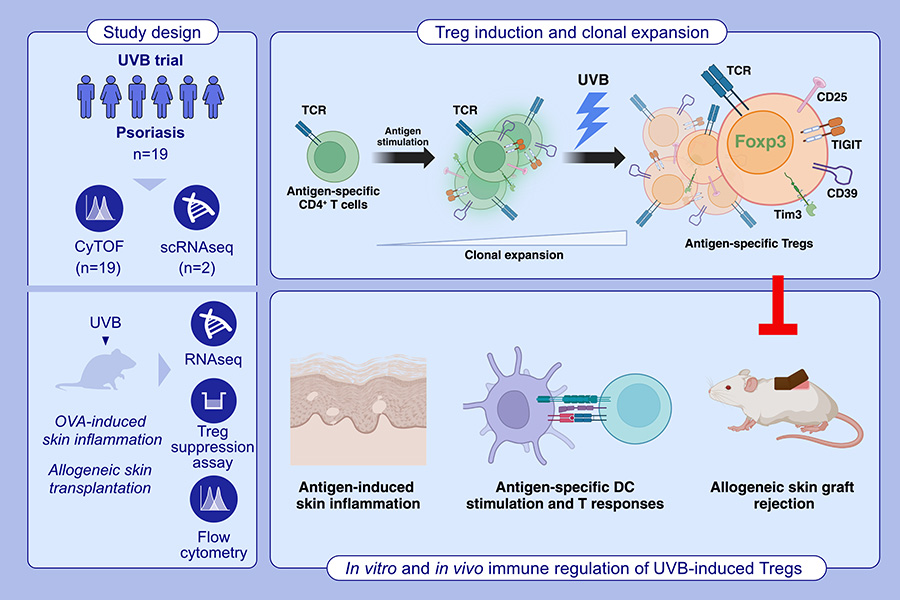Date: 2025-09-08
Narrowband UVB (UVB) phototherapy is a standard clinical treatment for psoriasis and other inflammatory skin diseases, yet its immunoregulatory mechanisms have long remained unclear. A research team led by Dr. Yungling Leo Lee at the Institute of Biomedical Sciences, Academia Sinica, in collaboration with the Departments of Dermatology at National Taiwan University Hospital and Shuang Ho Hospital, conducted an in-depth analysis of immune changes in psoriasis patients before and after phototherapy using single-cell sequencing and mass cytometry (CyTOF). The findings were further validated in mouse models of antigen-induced skin inflammation and allogeneic skin transplantation.
The study revealed that UVB phototherapy induces naïve CD4+ T cells to differentiate into antigen-specific regulatory T cells (Tregs) with potent immunosuppressive functions. These Tregs also demonstrated a capacity for clonal expansion, underscoring their key role in suppressing inflammation and autoimmune responses. This discovery not only elucidates the immunological mechanisms of UVB therapy but also provides a foundation for the development of novel therapies targeting autoimmune and inflammatory diseases.
This work was supported by Academia Sinica and National Taiwan University Hospital. This research was jointly conducted by Dr. Yungling Leo Lee, Dr. Chun-Hao Lu, Dr. Ching-Hui Tsai, and their team. Clinical sample recruitment was supported by dermatologists at National Taiwan University Hospital and Shuang Ho Hospital, while CyTOF analysis of the clinical samples was assisted by the Inflammation Core Facility at the Institute of Biomedical Sciences. The study was published on August 22, 2025, in Allergy.









 Home
Home

